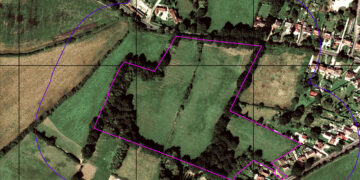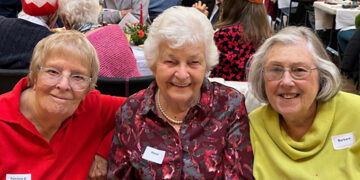The soldier who worked for peace: Robert Baden-Powell died 80 years ago this month but his legacy and principles live on.
Robert Baden-Powell who founded the world’s largest youth movement, died in January 1941. He was born on 22nd February 1857 to Henrietta and Reverend Baden-Powell. He went to Charterhouse school at the age of 13 where he became well known for his acting skills and artistic talent. He continued to paint until a few days before his death. He was also goalkeeper for the school’s first XI.
At 19 he joined the army with 12th Hussars in India, where he took part in sport, playing polo for the regimental team and amateur dramatics. When the 12th Hussars returned to England he became an ADC in South Africa and Malta. When he re-joined the 12th Hussars in England he was the youngest Colonel in the British Army. When he had to leave his beloved Hussars again to return to India, a Sergeant of the regiment was asked if he was liked by the men he replied, ‘No I wouldn’t say they liked him, they worshiped him’.
On arrival in India he reduced the drill and ceremonial and to improve the men’s health, built a bakery, a dairy, a temperance club and supper rooms where the alcohol was served. Whilst there, a trip to Kashmir convinced him that the outdoor life ’without any military objective,’ was immensely valuable.
His next move in 1899 was to South Africa where the situation had deteriorated so that firm demands had to be made of the Boers and enforced by the British Army. It was here that he made his name at the siege of Mafeking where he outwitted a Boer army, much superior in numbers and weapons, He became a hero back in England and the country’s most popular soldier. After the hostilities ceased he formed the South African police force and issued them with moral guidelines.
It was on his return to England and appointment as Inspector General that he started work on what was to become one of the world’s best-selling books, ‘Scouting for Boys’. When his appointment ended, he took the opportunity to further his ideas to develop amongst boys of all creeds and classes, the power of sympathy with others, the spirit of self-sacrifice and patriotism and to prepare them to be good citizens. He believed this could be done with outdoor pursuits. To test his ides he organised an experimental camp on Brownsea Island with 22 boys aged between 13 and 16. 13 from public schools and 9 from working class families.
After lecturing extensively on his Boy Scout scheme he retired from the army in 1910 to devote himself entirely to the Scout movement. The Scouts spread rapidly throughout the world and he inaugurated the Wolf Cubs 8-11, basing their training of Rudyard Kipling’s Jungle Book. He wanted girls to become Scouts but others felt this would coarsen young girls, so he created different programmes and a separate organisation. the Girl Guides and his wife became the Chief Guide.
He instituted international jamborees and as he ended the first, he asked them that through the worldwide spirit of the Scout Brotherhood to help bring peace and happiness in the world. From that time, the promotion of peace became his first priority.
He was determined that Scouts and Guides should be open to all faiths arguing that no religion held the monopoly of the truth.
By 1929 there were 4 million Scout worldwide and 300.000 attended the Jamboree celebrating 21 years of Scouting from 71 different countries.
Although Scouting has changed to keep up to date, Robert Baden-Powell’s principles are still very much part of the movement, as illustrated by Berkshire Scouts. Last year was the third time that Mick Stocks of Woodley arranged for young Scouts from the County to travel to Uganda, at their own expense to work on community projects. 105 Explorer Scout and 29 Leaders carried out renovation and construction work to three primary schools and the District Scout Camp. They also helped make bricks to build teachers’ houses, The Scouts made many new friends, learnt some skills for life and experienced Ugandan culture.

Baden Powell and his wife retired to Africa, to Nyeri in Kenya, where his grave is still visited by Scouts from all over the world. Logic dictates that he died of old age and illness but for the man whose dream was by that bringing young people together, from all over the world at his Jamborees, they would make friends, and friends wouldn’t want to fight one another, is it too fanciful that with the world once again at war, he died of a broken heart.
Dick Sawdon Smith















































